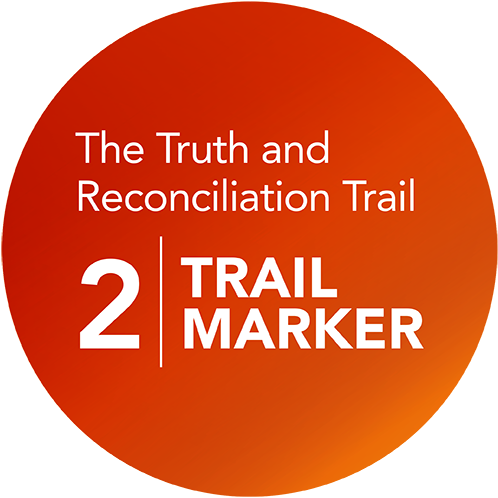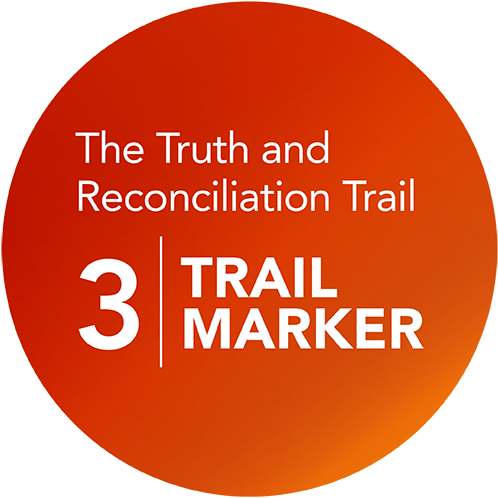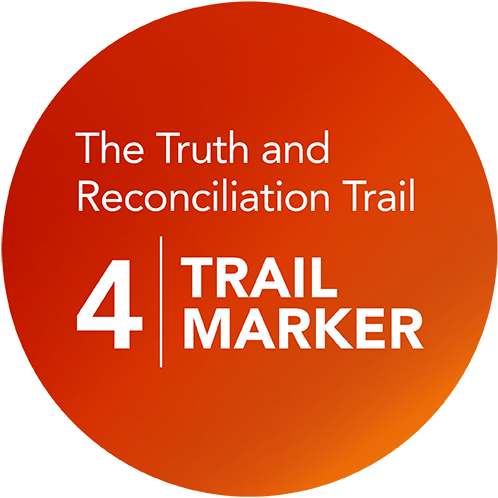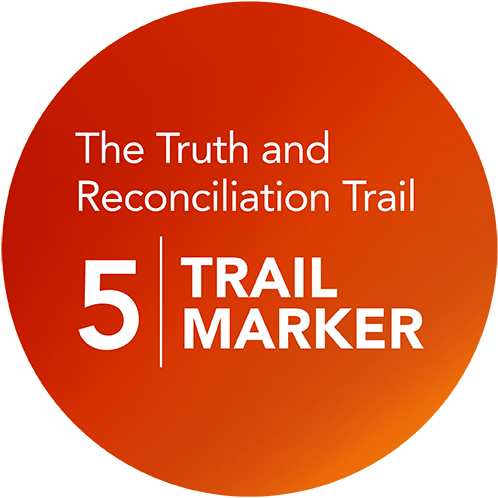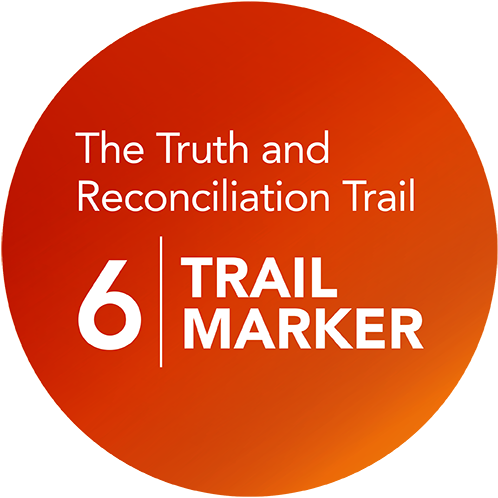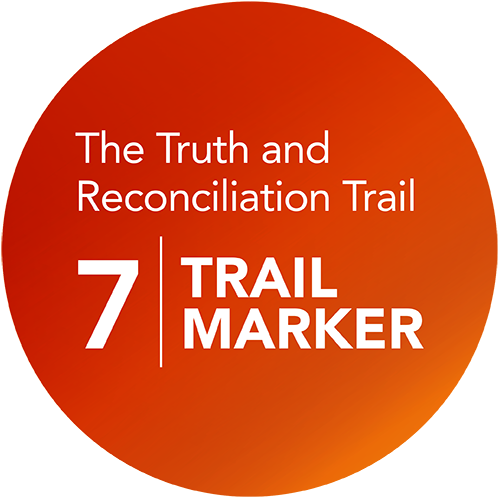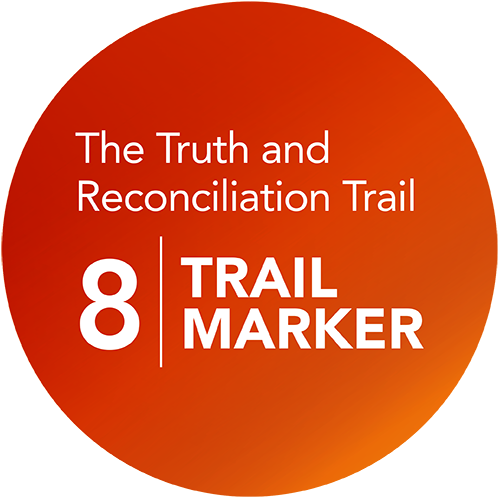
Truth and Reconciliation Trail
Debwewin miinwaa Naaskodaadiwin Miikaans
Flanked by stones hand-painted in a vivid orange, the forested Truth and Reconciliation Trail at Georgian’s Orillia Campus is a striking visual reminder to all campus visitors about the painful legacy of residential schools in Canada.
Trail marker 1: Debwewin Miinwaa Naaskodaadiwin Miikaans
We invite you to embark on a journey through the Debwewin Miinwaa Naaskodaadiwin Miikaans (Truth and Reconciliation trail). As you traverse the trail, you’ll notice markers. These markers share knowledge on topics that advance Indigenous ways of knowing and being, and promotes dialogue on Truth and Reconciliation.
Origins of the trail
In response to the discovery of unmarked graves at Residential Schools, the Orillia Campus wanted to commemorate and bring awareness to the events that lead to the creation of the National Day of Truth and Reconciliation. Inspired by the initiative lead by Elder Rosanne Irving at Severn Shores Public School to paint rocks orange as an act of remembrance to honour Residential School children, employees and students at the campus followed suit.
Methodology
The trail is a work in progress, much like our commitment to deepening and expanding our relationship with Indigenous Peoples and the land. As you explore the trail, it will become evident that “learning how to learn” is one of the most important elements in Indigenous cultures and teaching and learning, and that knowledge is shared in many ways, including arts and storytelling, and through relationships of the individual with the world.
How to engage
As you journey along the trail, we invite you to visit each trail marker and to actively participate in the teaching being shared by seeing yourself in the story. You are invited to take on the role of E-baa-ndakenjiged (journey in Ojibwe—one who goes about seeking knowledge), by listening and reflecting.
You’re encouraged to co-construct meaning from what you’ve heard, read, and experienced. Please keep in mind that as you travel the trail, you might experience a shift from being comfortably unaware to uncomfortably aware, something Susan Dion refers to as shifting from the Perfect Stranger to the Not-so-Perfect Stranger, as you discover how much you don’t know about Indigenous Peoples and their histories. As learning is a continuous journey, you are encouraged to continue to actively search for ways to join the conversation and in doing so advance reconciliation.
Each trail marker’s QR code will lead you to expanded knowledge. You’ll also see a GATHERING TRUTH section where you will find links to resources to learn more about the topics explored. You’ll also find a Reconcili-ACTION attached to each marker – this is a meaningful act that moves reconciliation forward.
GATHERING TRUTH
Reconcili-ACTION
You’re now invited, as an act of reflection, to line the Debwewin Miinwaa Naaskodaadiwin Miikaans or Truth and Reconciliation Trail with an orange stone. Each orange stone represents the weight of loss – loss of languages, cultures, and lives – as a result of colonization and the Indian Residential School system. It’s also part of a larger movement to recognize that Every Child Matters.
If you’re exploring the trail virtually, paint your own orange stone to place in a garden, along a local trail, or any other special place.
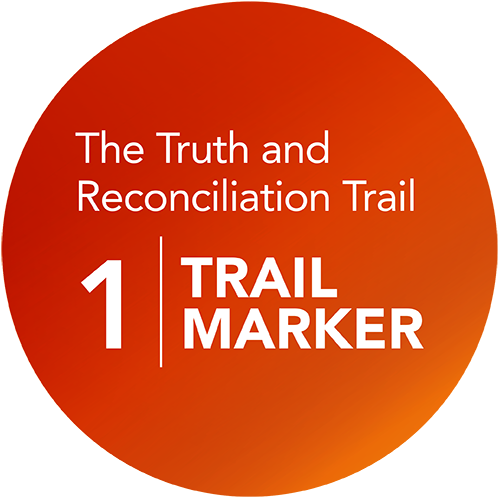
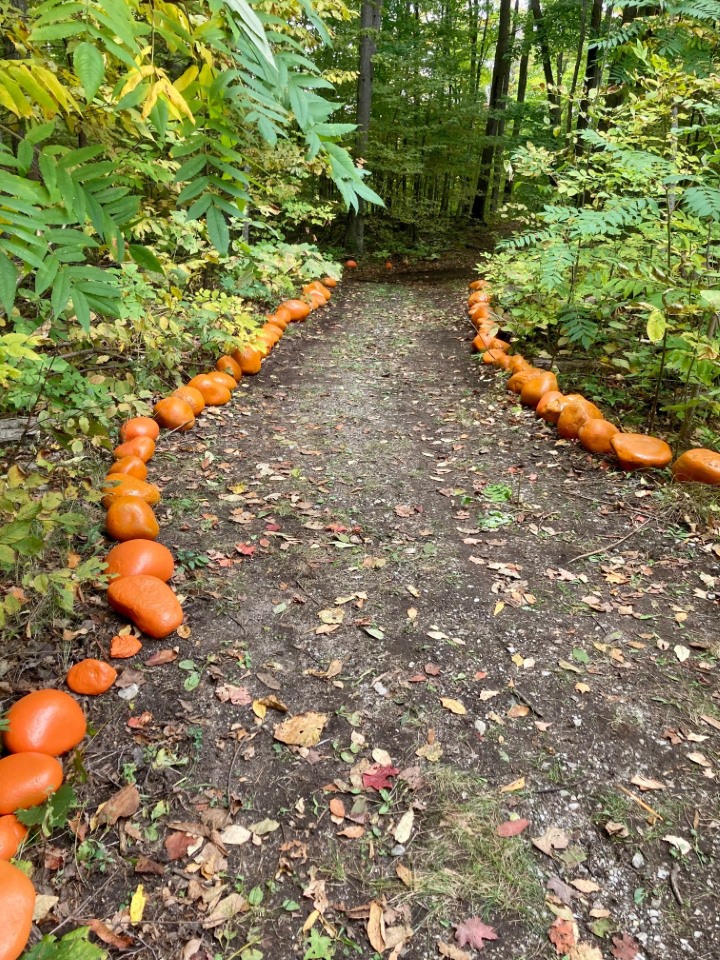
References
Dion, Susan D. (2022). Braided Learning: Illuminating Indigenous Presence through Art and Story. Purich Books.
Content warning
Georgian College encourages and acknowledges that both Indigenous Peoples and non-Indigenous allies will use the Debwewin miinwaa Naaskodaadiwin Miikaans learning trail. We know that the topic of Residential Schools, their realities and their impacts could be triggering for Indigenous People, especially those that are Survivors and descendants of Survivors. The decision to include the harsh reality of these “schools” was not taken lightly. We believe that in order to move forward with meaningful Reconciliation, we must begin with the Truth. This trail discusses topics that may be upsetting and awaken memories of past traumatic experiences and abuse. We encourage Indigenous People and allies to please take care while travelling on this trail.
The National Indian Residential School Crisis Line provides 24-hour crisis support to former Indian Residential School students and their families toll-free at 1.866.925.4419.
Individuals impacted by the issue of Missing and Murdered Indigenous Women and Girls (MMIWG) are encouraged to contact the MMIWG Crisis Line toll-free at 1.844.413.6649.
First Nations, Inuit and Métis seeking immediate emotional support can contact the Hope for Wellness Help Line toll-free at 1.855.242.3310, or by online chat at hopeforwellness.ca.
GuardMe Student Support Program: All international students can access confidential support 24/7 via GuardMe Student Support Program. Students living in Canada call 1.844.451.9700. Students living in another country call 1.416.380.6578. Students can also download the My SSP App
Georgian College students can visit MentalHealth.GeorgianCollege.ca to book an appointment with a counsellor or peer supports.
Georgian employees can access the Employee and Family Assistance Program (EFAP) for support.
Continue your journey through the trail markers
What to learn more about Indigenization at Georgian?
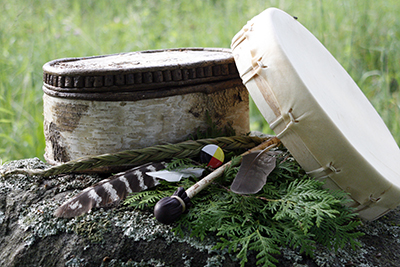
Contact information
Sandi Pallister-Gougeon
Academic Program and Support Officer
Indigenous Studies/Services
249.388.0701
Email Sandi
